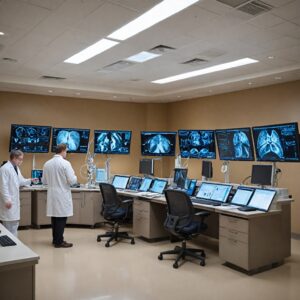
Highlights
– Britain’s Alan Turing Institute to refocus on defense, environment, and health projects.
– Institute to slash a quarter of its current projects and consider job cuts.
– Transformation aims to align with technological advancements and criticism of the institute’s record.
Revamping the Alan Turing Institute: Adapting to Modern Demands
The Alan Turing Institute, a pioneering artificial intelligence agency named after the renowned British computer scientist, is undergoing a major transformation. With the rapid advancements in AI technologies and calls for improved governance, the institute is reevaluating its strategic focus. Established a decade ago by David Cameron’s government, the institute is now realigning its priorities to concentrate on defense, environment, and health projects.
Jean Innes, appointed as the chief executive in July 2023, emphasized the need for a more targeted approach to address real-world challenges. The institute’s current portfolio of 101 projects will be trimmed significantly, with a quarter of them being closed or transferred. This restructuring comes in response to a review highlighting the necessity for evolving the governance and leadership structure to better represent the AI landscape in the UK.
Adapting to Change: The Core Shift at Turing
The shift towards what is termed as “Turing 2.0” signifies a strategic pivot rather than a cost-cutting measure. While job cuts have been a concern, the institute aims to secure additional funding from various sources, including government grants and collaborations with defense and intelligence institutions. Notably, a critical focus will be on the autonomous defense of national infrastructure, aligning with the evolving landscape of digital warfare and security challenges.
The institute’s engagement with the US-based Special Competitive Studies Project underscores the importance of international collaboration in addressing global security issues. Despite geopolitical uncertainties, Innes remains optimistic about maintaining robust partnerships with key allies. Moreover, recent achievements in environment and health sectors, such as AI weather forecasting models and cardiac digital twin projects, demonstrate the institute’s commitment to impactful research and innovation.
Looking Ahead: Implications and Opportunities
As the Alan Turing Institute navigates through this transformative phase, questions arise about its adaptability to emerging technologies and evolving security landscapes. How will the institute sustain its mission while accommodating changing demands in the AI sector? Moreover, what steps can be taken to ensure a smooth transition for staff and maximize the institute’s impact on crucial sectors like defense, environment, and health?
In conclusion, the Alan Turing Institute’s strategic realignment reflects a proactive response to the evolving AI landscape and the need for impactful research in critical domains. By fostering collaborations, embracing innovation, and addressing governance challenges, the institute aims to solidify its position as a leading hub for AI advancements. As the institute embarks on this new chapter, how can stakeholders contribute to its success, and what role will the institute play in shaping the future of AI research and applications?
Editorial content by Dakota Sullivan










